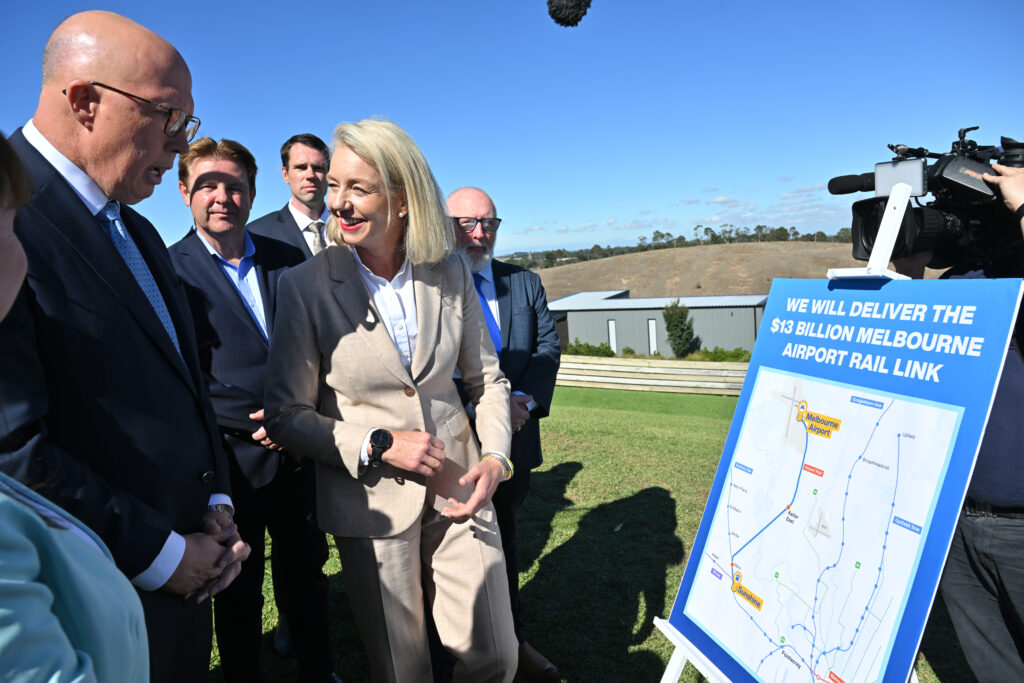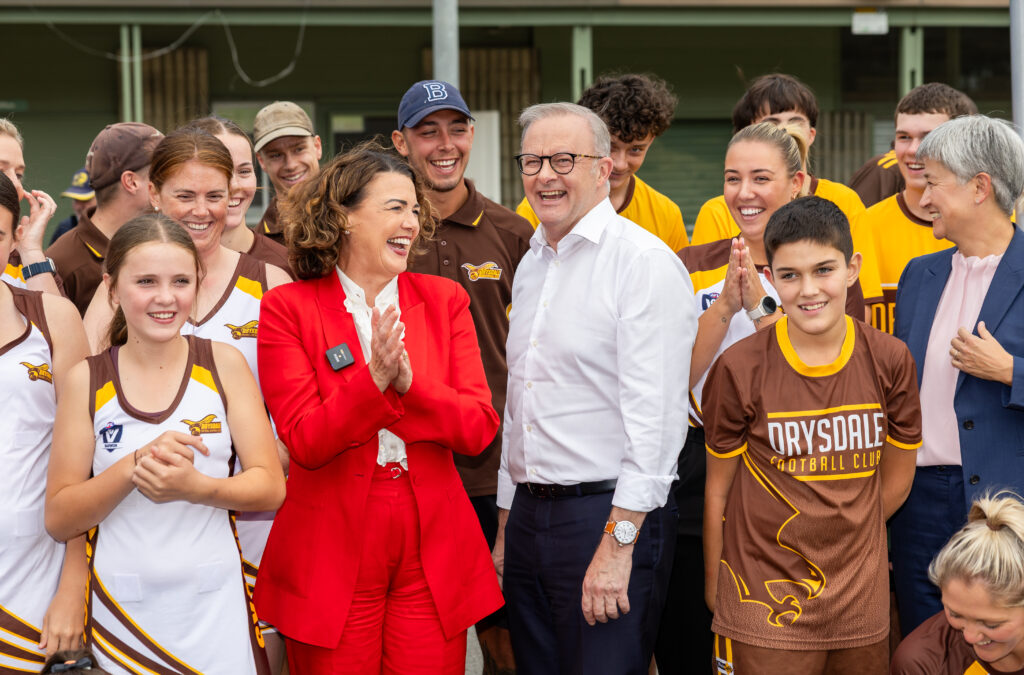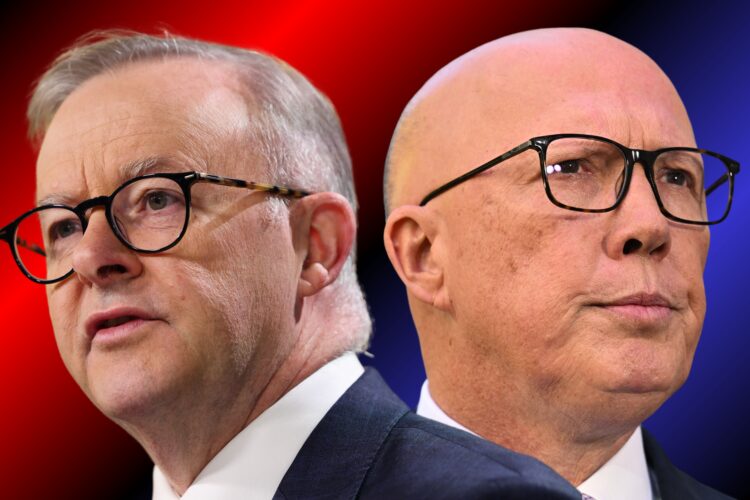Good evening – see you tomorrow!
And with that, we are going to say good evening – it is important to take these slightly early marks where you can because the days are only going to get longer.
Today we saw:
Labor stick with its health week theme, with a $150m announcement for the Flinders’ medical district in Adelaide
More questions on the spy/research vessel and press gallery worries about underwater sea cables for reasons which still remain unclear
Anthony Albanese has worked out after three years how to control a press conference (looks like that Dan Andrews coaching is paying off!)
Albanese heading to Geelong to talk kids sport and get more images of him being very positive on the campaign trail
Peter Dutton and Bridget McKenzie looking at a sign in a field as they promised funding for Melbourne’s rail link (at the expense of the suburban rail loop no one seems to want)
Dutton unable to say what is ‘woke’ in the educational curriculum he was gung ho about de-woke-ifying on Sky News the night before
Dutton very upset about the Chinese spy/research vessel and very worried about underwater sea cables
Dutton holding a very quick press conference with victims of crime in the seat of Bruce (which is one of the Coalition target seats)
No one talking about the Coalition housing policy to lighten lending regulations, because the policy seemed to get very confused depending on who was talking about it.
Malcolm Turnbull having a great old time on his victory lap about not putting all your eggs in the Aukus basket
The RBA holding interest rates shocking no one
The RBA getting a bit confused about the impact of tariffs
Tomorrow is Trump’s ‘Liberation day’ eve which means we are going to get more panic over how Australia is going to react to it’s ‘greatest ally’ slowly circling the geopolitical toilet bowl.
WHAT FUN!
Thanks so much to everyone who joined us today – we hope to see you again tomorrow. Until then, send in more of your questions (amy.remeikis@australiainstitute.org.au) and I will get them answered by our experts – and take care of you. Ax



